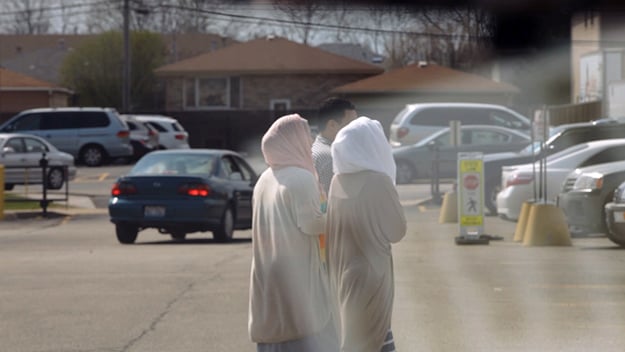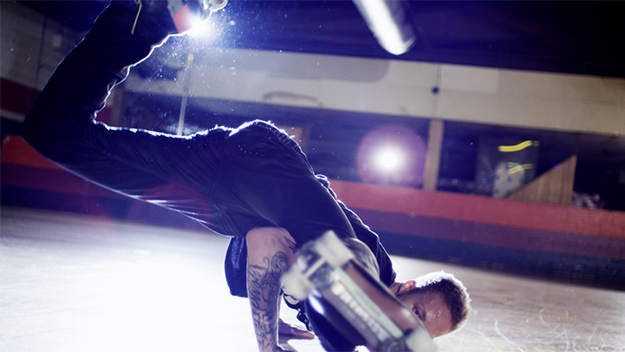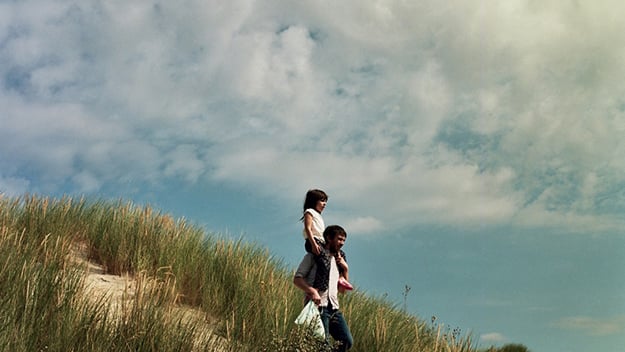The Feeling of Being Watched Having failed to complete my coverage of the Tribeca Film Festival (which ran April 18 to 29) before traveling to the Cannes Film Festival, I mulled over the New York event from the shore of the Mediterranean. The two are so different that comparison seems futile, except as a way of clarifying why both are useful at a moment when “the movies” is an endangered species. Cannes is the world’s most powerful film festival, comprising both a curated slate of about one hundred movies—screened for invited audiences of cinephiles, critics, industry personnel, and what is referred to by the festival as “the public”—and the world’s largest film market, attended by buyers and sellers, many of whom are also categorized as “industry” and therefore able to attend the official selection screenings in a mingling of art and commerce. Although Cannes and Tribeca present roughly the same number of films, Cannes favors recognized auteurs, with just enough unknowns in the mix to boost the festival’s reputation as a career maker. Tribeca’s slate this year was made up almost entirely of first-time directors and filmmakers who fly beneath the global radar. Nearly half of them were women. The critics that fill Tribeca’s month-long pre-festival screenings hope to discover new talent, the festival hopes that the aura of discovery will attract audiences, and of course the filmmakers hope that the combined attentions of press and audiences will help them sell their movies in a now perpetually glutted marketplace, or if they’ve already sold their films, that the Tribeca imprimatur will distinguish them from the pack whenever they open theatrically or stream digitally, sometimes within days of their festival premiere. Tribeca doesn’t host a market; rather, following Sundance in this and many other aspects, it’s a place where buyers can easily graze. And like Sundance, it has branched out into VR and other new media exhibitions, and into music programming. One of the hottest tickets was for Patti Smith performing live at the Beacon Theatre following the premiere of Steven Sebring’s documentary Horses: Patti Smith and Her Band, which covers Smith’s 2015 Los Angeles performance on the 40th anniversary of the Horses album.
United Skates The Patti Smith program was part of a TIME’S UP series, hosted by Tribeca, which addressed the here and now and the future of women in all the arts. The best part of Tribeca this year was the political organizing and activism taking place in and around the festival with women’s issues at the center. Exciting, because it was so unexpected, was seeing Robert De Niro take to the stage at several events, including the closing-night screening of The Fourth Estate, Liz Garbus’s surprisingly circumspect inside-the-newsroom documentary about The New York Times during the first year of the rotting pumpkin presidency. (It’s currently available on Showtime.) Ordinarily a shy public speaker, De Niro vented his outrage at the body politic, which should inspire more people to take to the frontlines than even his comedy bits on SNL. A more courageous, eye-opening documentary about the power of journalism—and of one journalist in particular—to help a community defend itself against unconstitutional intrusions by U.S. intelligence agencies, Assia Boundaoui’s The Feeling of Being Watched depicts the filmmaker’s investigation into the FBI surveillance of Bridgeview, the middle-class Arab-American Chicago suburb where she grew up. Boundaoui, who graduated from NYU’s journalism school in 2011 and identifies herself to the feds as a reporter for NPR (she also freelances for the BBC, Al Jazeera, CNN, and HBO), began her research by lodging a Freedom of Information Act request for her FBI file as well as those of family friends and neighbors who had been surveilled for decades. Strange things begin to happen to her laptop, and the FBI delays so long that she takes her case to court, where eventually she wins. But of course that isn’t the end of it. The story which she unravels began more than 10 years before 9/11—the FBI named their Bridgeview surveillance “Operation Vulgar Betrayal”—and continues today, with Islamophobia pitched higher than ever. Both a thriller and an organizing tool, The Fear of Being Watched is an exceptional marriage of the personal and the political. Boundaoui works from her family home, she uses her camera as a confidant throughout, and she’s known the people she succeeds in rallying to speak truth to power for most of her life. On the opening night of TFF, she and an impromptu group of filmmakers projected redacted FBI documents on the side of the windowless building on Church Street in Tribeca which has been outed as a headquarters for the NSA. As a site-specific expanded cinema work, it was the Tribeca Film Festival at its most powerfully creative. The winner of the Audience Award for Documentary, Dyana Winkler and Tina Brown’s United Skates is an unlikely but wildly successful merger of the depiction of roller skating as a popular, kinetically thrilling sport/art form with a detailed exposé of racism in small towns and big cities all over America. First-time feature filmmakers, Winkler and Brown traveled all over the country investigating the history of roller rinks and how their rules (size of wheels, music playlists) were purposeful in enforcing segregation. Ingenious and undaunted, dedicated skaters open their own rinks, and move on when they go broke because their revenue can’t match the real estate taxes or are forced out by gentrification. The film traces the connection between the popular idea of hip hop culture as music, break dancing, and graffiti, and the secret ingredient in the whole shebang, skating. Dr. Dre was the first DJ at Skateland, the giant rink in Los Angeles, which was briefly rivaled by World of Wheels. Skateland was forced out of business first, World of Wheels followed. Dedicated skaters mourned and organized and four years later World of Wheels reopened, but who knows for how long. The film gives pretty much equal time to stars of the rink, whose dazzling trademark moves are specific to their point of origin, and ordinary people, who just love to skate with their families, lovers, and friends. Time and again, they take on seemingly overwhelming obstacles to keep what they love alive.
The Elephant and the Butterfly Nearly simultaneous with, although not as momentous as, the leaders of North and South Korea making nice in the DMZ, the Tribeca Film Festival gave three prizes in its American narrative competition to Diane, the first fiction feature written and directed by Kent Jones, the director of the New York Film Festival. Diane won the best feature, screenplay, and cinematography prizes. Set in a small town in the Northeast, Diane is a moving search for glimmers of spiritual transcendence in a life blighted by guilt and insularity. Both austere and literary, the film recalls Carl Dreyer by way of Paul Schrader. The narrative accumulates slowly, but thanks in part to a rigorously unsentimental performance by Mary Kay Place as the titular Diane, the film is finally a heartbreaker. Martin Scorsese was the executive producer of both Diane and The Elephant and the Butterfly, a first feature by Belgium director Amélie van Elmbt, produced by the Dardenne Brothers and radiantly photographed by Eric Gautier. Few first- time filmmakers are this well supported but Van Elmbt deserves to be. Gesture and behavior are almost everything in a minimal story of a father (Thomas Blanchard) who finds himself for three days the sole babysitter of the five-year-old daughter (extraordinary Lina Doillon) he’s just met for the first time. At first, the father doesn’t seem like the most trustworthy character, but the daughter, who, like many five-year-old girls, wants a dad, is as physically spontaneous, affectionate, and secure as only a little girl who has been cared for and protected by her mom and a female nanny or two can be. The film doesn’t shy away from the father’s awkwardness and self-consciousness when, say, he has to give his daughter a bath. You can virtually hear his inner monologue: how do I touch her without making myself fear that I’m a pedophile? What’s amazing about the film is not just conflicted moments like this, but the subtle changes that transform the characters as they grow into the relationship of father and daughter. At Cannes, with its large theaters and impatient audiences racing from movie to movie, The Elephant and the Butterfly would have been nearly invisible. At Tribeca, it was a real find. Amy Taubin is a contributing editor to Film Comment and Artforum.


